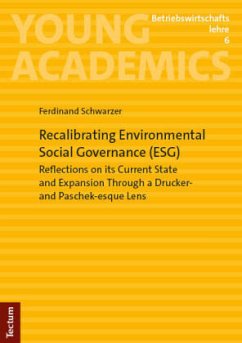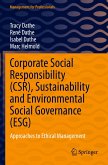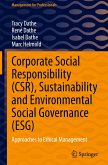ESG swiftly transitioned from a financial niche to a topic of public discourse, but recent disillusionment has challenged its transformative potential for developing sustainable societies. This thesis seeks to recalibrate ESG in terms of its effectiveness over its efficiency. Exploring ESG's history, ecosystem and diverse perspectives, the study conceptually expands each pillar through Gen Z's societal roles and both Peter Drucker's and Peter Paschek's insights into the social responsibility of businesses and the requirements for a 'bearable society'. The author's quantitative and qualitative analysis reveals that expanding ESG could be promising for every company, with the caveat that it will also lead to (only initial) discomfort for society's major leadership groups.








